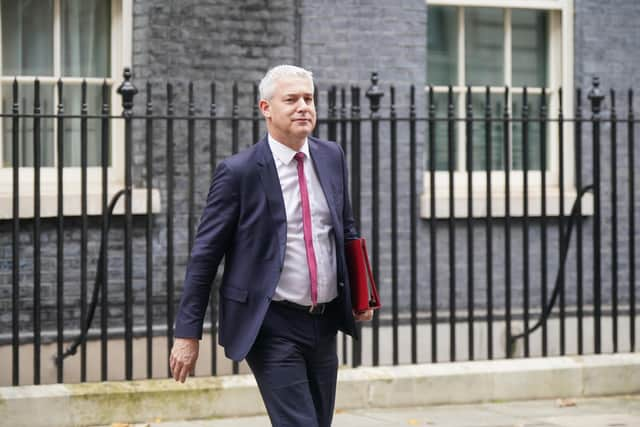Why I want to tackle farmers' suspicions about regulatory bodies: Steve Barclay
I want to bring a clearer focus on enabling food production in our environmental land management schemes, because food production can and should go hand in hand with preserving the diversity and abundance of nature.
As well as updating on prices in our environmental land management schemes with an average 10 per cent uplift to unlock more money for these schemes; and giving more choice about what you can do with more Sustainable Farming Incentive (SFI) actions made available to better reflect the full spectrum of farming interests; I also want to build more trust.
Advertisement
Hide AdAdvertisement
Hide AdBecause the feedback I have received suggests too often farmers feel the regulatory bodies start from a position of suspicion rather than one of trust.


Those already in schemes will automatically benefit from this uplift. And in addition, if you have a plan to pull things together in a way that makes a significant difference, you will be paid a premium for that as well.
We’ll also introduce more schemes to support environmental action that underpins profits for food production by supporting SFI actions that promote healthy soil, increased pollinators and precision farming.
We are making SFI simpler, including more suitable for tenant farms, with three year agreements taking on board the recommendations from Baroness rock. We have been consistently clear as a government that we will not compromise on food safety.
Advertisement
Hide AdAdvertisement
Hide AdBritish farmers are rightly proud of producing food that meets and often exceeds our world leading animal welfare and environmental standards. And British consumers want to buy this top-quality food. But too often products produced to lower welfare standards overseas aren’t clearly labelled to differentiate them.
This is why I’m pleased to announce that we will rapidly consult on clearer labelling so we can tackle the unfairness created by misleading labelling and protect farmers and consumers.
This will explore how we can better highlight imports that do not meet UK welfare standards, improve how origin information is given online, and look at how we can do even more to ensure promotional activity such as Union Jack labels on supermarket displays matches the products on the shelf.
For example, this rapid consultation will address concerns such as the pork reared to lower welfare standards overseas, which is then processed in the UK and presented in supermarkets to shoppers as British. And this will include bringing lightly processed meats into the same level of labelling as unprocessed pork, and beef.
Advertisement
Hide AdAdvertisement
Hide AdWe will also explore whether existing country of origin labelling rules can be strengthened by mandating how and where origin information is displayed. For example, on the front of packs, meaning farmers are fairly rewarded for meeting and often exceeding high UK welfare standards. And indeed, this reflects the lessons from labelling on eggs, where informed consumer choice has driven changes in consumer purchasing with the number of free-range eggs more than doubling.
The hard work and dedication of farmers, fishers and food producers makes this country competitive globally - the English sparkling wine, the Scottish smoked salmon and whisky, the Welsh lamb, the Northern Ireland beef. And it all gets a massive vote of confidence from consumers around the world to the tune, in fact, of around 24 billion in exports for the British economy.
Steve Barclay is the Environment Secretary. This is an edited version of a recent speech to the Oxford Farming Conference.
Comment Guidelines
National World encourages reader discussion on our stories. User feedback, insights and back-and-forth exchanges add a rich layer of context to reporting. Please review our Community Guidelines before commenting.